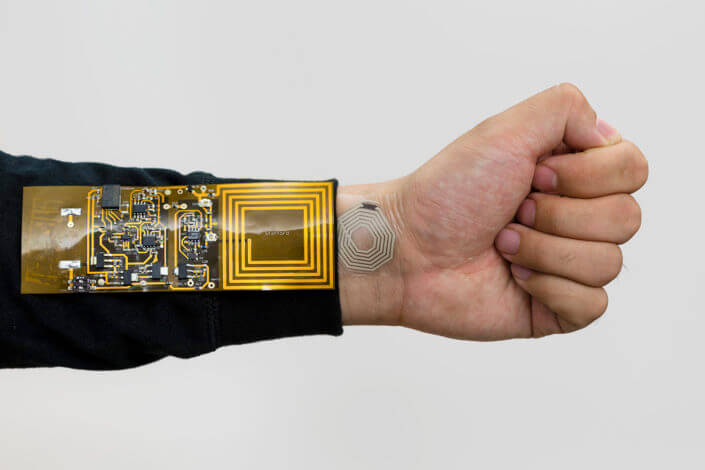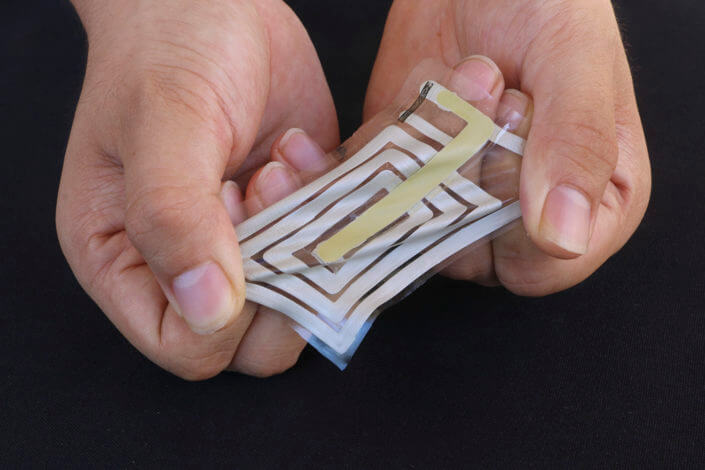Stanford engineers have developed a new, non-invasive device that can detect physiological data, in the form of a flexible sticker sensor.
This sensor, made out of metallic ink, is set on top of a flexible material similar to the one we normally find in an adhesive bandage. And it’s thanks to the flexibility that it can track the signals of the body. Based on how it is stretched or compressed, it sends small changes in the way the electricity passed through the metallic ink, and these changes send data onto a processor that rests somewhere close.
The engineers called it BodyNet and detailed the wearable technology in an article published in Nature Electronics.
Depending where the sensor is placed, it will send out information about that particular area of the body. For example, if it would be placed on a joint, it can relay information on if and how many times the joint was flexed but the sensor can also detect any changes the skin might have experienced during every heartbeat or other changes that come along with breathing.
But how do you bounce the signal off the skin?
In order to avoid using any wires or antennas, the engineers turned their attention towards RFID signals, which don’t use a lot of voltage at all. In terms of the receiver that collects the sensor’s signal and sends it to another device, they managed to create a small enough unit that performs well and can be attached to clothes. This unit has to be close to the sensor in order to relay accurate results and, while the engineers managed to achieve that, the end result is still not as inconspicuous as they would like it to be.

But that is just a design limitation and the engineers are sure it’s an obstacle that they will be able to tackle successfully in a couple of years.
Zhenan Bao, a chemical engineering professor who worked on the system hopes that one day, they will be able to create an entire array of such sensors and receiving units that could work alongside smart clothing and track a number of health indicators, way more than today’s smartphones or smartwatches are capable of doing at this point in time.
“We think one day it will be possible to create a full-body skin-sensor array to collect physiological data without interfering with a person’s normal behavior,” Bao said.
Follow TechTheLead on Google News to get the news first.



















